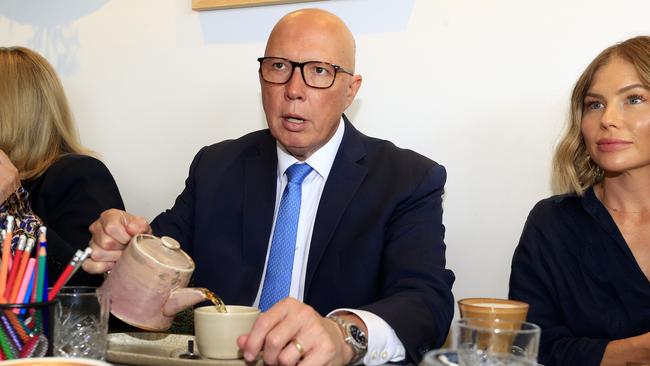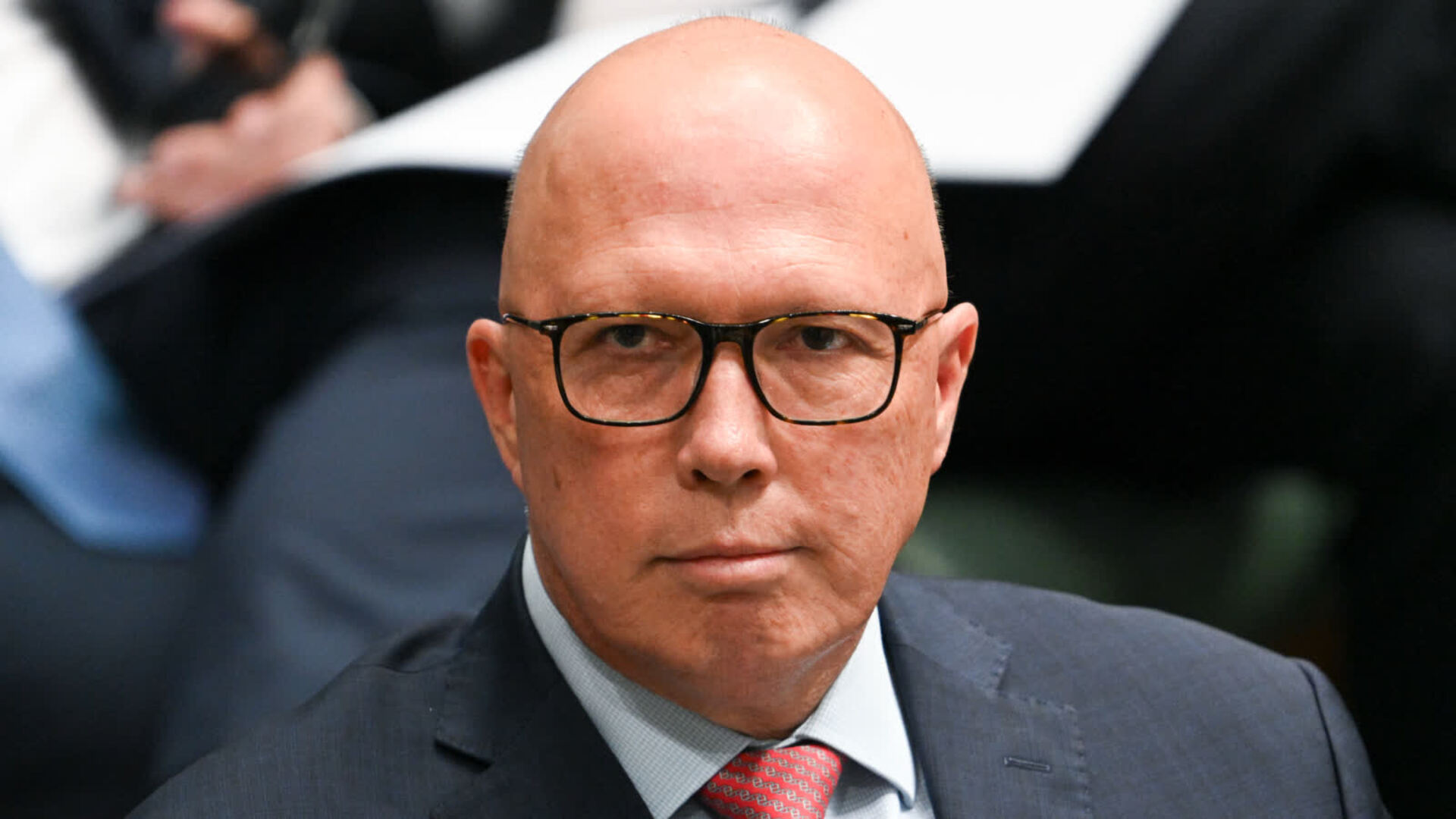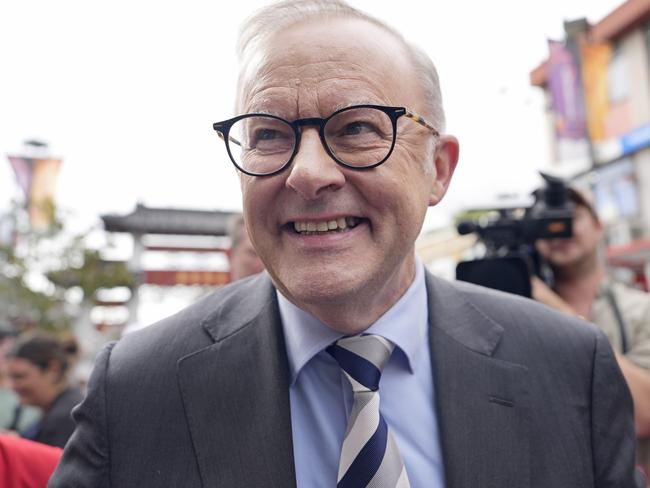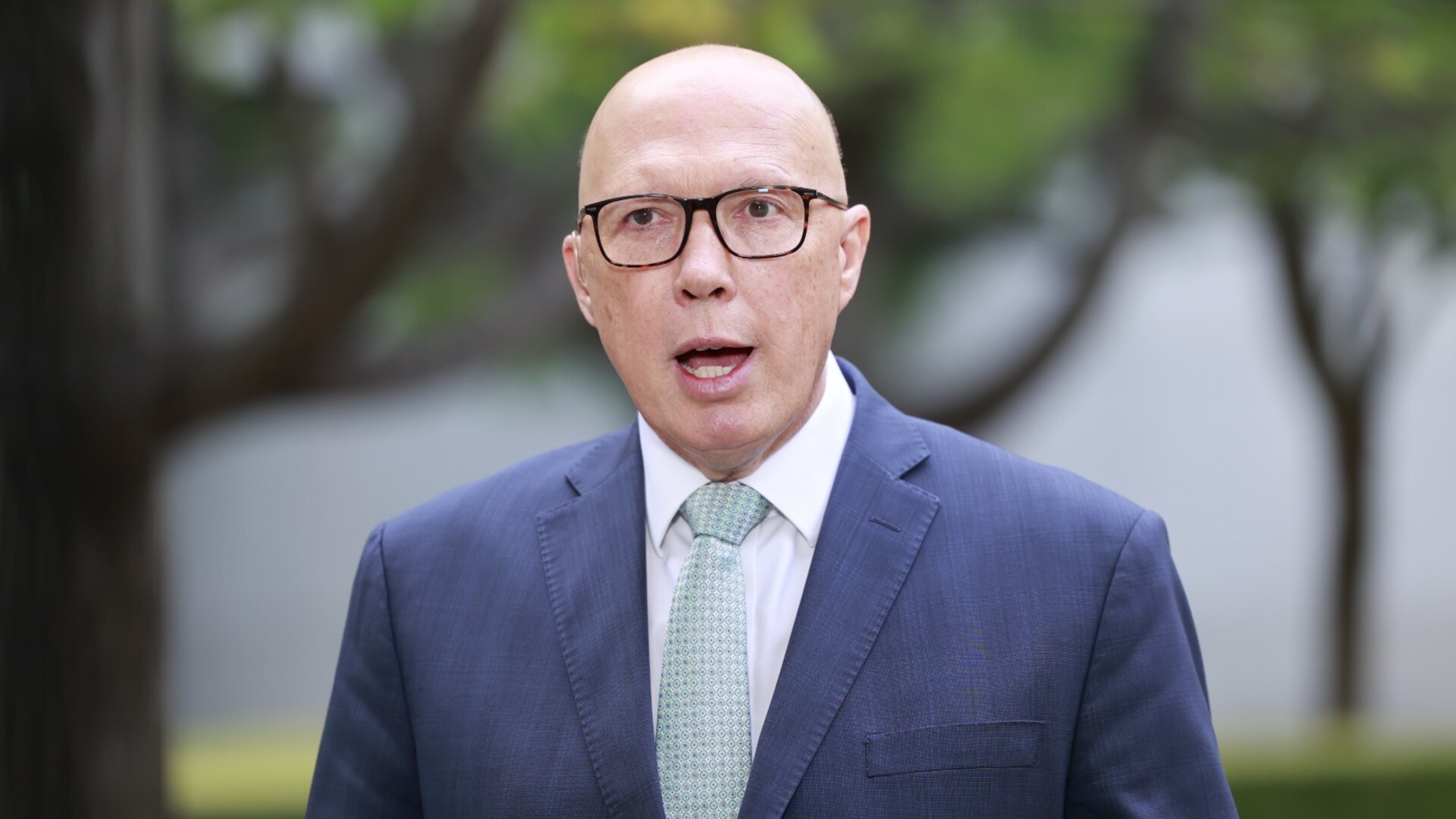
You have to give it to the geniuses advising Peter Dutton in this campaign. In their desperation to minimise any political differences with Labor, they have ignored an immense tax policy blunder from their opponents.
Anthony Albanese is not only proposing to double the capital gains tax on Australians with $3m or more in their superannuation accounts.
But remarkably, they will be taxed on their paper returns – which could easily be reversed by later market movements – which will force many to liquidate assets or even borrow money to meet their liabilities.
And this is no tax intended only for the big end of town, but deliberately designed to one day apply to people on far more modest means.
The giveaway? Its $3m threshold will not be indexed with inflation – in yet another dishonest application of bracket creep – which will see it very quickly drawing in hundreds of thousands of retirees.
In its first year, the tax is expected to raise only $300m but, according to the Parliamentary Budget Office, this will increase by a factor of eight after only four years (to $2.4bn annually) and more than 20 in a decade (to $7bn).

This unprincipled and economically harmful tax puts Bill Shorten’s disastrous proposed hit on investors at the 2019 election in the shade – he did not dare to go after unrealised gains.
Yet only now, in the very last week of the campaign, are Peter Dutton and Angus Taylor seeing fit to mention it; and then, only after a chorus of business leaders sounded the alarm.
The latter rightly pointed out that Albanese’s proposed tax is retrospective (with no grandfathering for existing retirees, who invested in good faith under different tax arrangements) and will deter new investment, limiting the flow of capital into many small businesses. But what really distinguishes it is its violation of perhaps the most important tax policy commandment of them all: thou shalt not impose a tax liability on people who do not have the cash on hand to pay it.
(While it is breached with state land taxes, they are typically levied at low rates – usually 1-2 per cent – on higher-value blocks).
This is why the ATO deducts income tax from wage earners’ fortnightly pay rather than sending them a massive bill at the end of the year; a policy, which if ever introduced, would cause riots in the streets.
And it is why, at least until now, investors have only been taxed on their realised capital gains; that is, on the money they receive from the sale of the asset – the house, farm or shares they previously owned – helping to guarantee they have the necessary cash to meet their ATO bill.
But Albanese’s proposed superannuation tax will be levied annually, whenever investments increase in market value (over a base year) as assessed by the ATO.

Since no actual income will have been earnt on these paper gains, many investors will be left in a difficult financial position – particularly those with illiquid assets such as farms and residential property.
(To add insult to injury, investors will not benefit from symmetric treatment. When their assets lose value, they will not get a rebate from the government.)
This is dumb tax policy, risking a revolt by cash-poor investors when the tax comes into effect. Their numbers will grow over time.
I was still working in Treasury when news of Albanese’s tax broke a few years ago. I was astounded that this idea ever saw the light of day. While I was not privy to the department’s advice, it was inconceivable that this option would be seriously canvassed with any government.
So why have Peter Dutton and Angus Taylor been so late to the party on this issue?
As I have written before, they appear to have taken a leaf out of Scott Morrison’s failed 2022 election playbook.
Their approach has been to mimic Labor by offering a range of “me-too” cost-of-living and housing bribes.

While Labor has ruthlessly exploited the Coalition’s traditional weakness on Medicare, Dutton has failed to do the same on Labor’s electoral Achilles heel, tax.
History shows that the Coalition does well when it campaigns on Labor’s tax plans, as the 2013 and 2019 elections attest.
Yet Dutton has opposed Labor’s -- admittedly derisory – income tax cuts announced in the budget and refused to abolish bracket creep.
And until the 11th hour, he has been silent on Labor’s proposal to tax retirees’ unrealised capital gains. He has plenty of material to work with in this regard, unlike Labor’s entirely fictitious Medicare campaign.
Albanese has tried, unsuccessfully, to get it passed by the Senate. He remains committed to it.
His future coalition partner, Adam Bandt, wants to broaden its application (lowering the threshold to $2m). And Jim Chalmers has already signalled his desire to tax savings and investment more heavily to pay for his future, Whitlam-esque spending plans. Dutton could well ask: Why would Labor stop at superannuation?
I am not suggesting the election can turn on this issue alone, but Dutton’s unwillingness to pursue it until now is baffling to me.
Sure, he is talking about it this week, but as John Howard has said about belated campaign efforts in the past, you cannot fatten the pig on market day.
David Pearl is a former Treasury assistant secretary.






